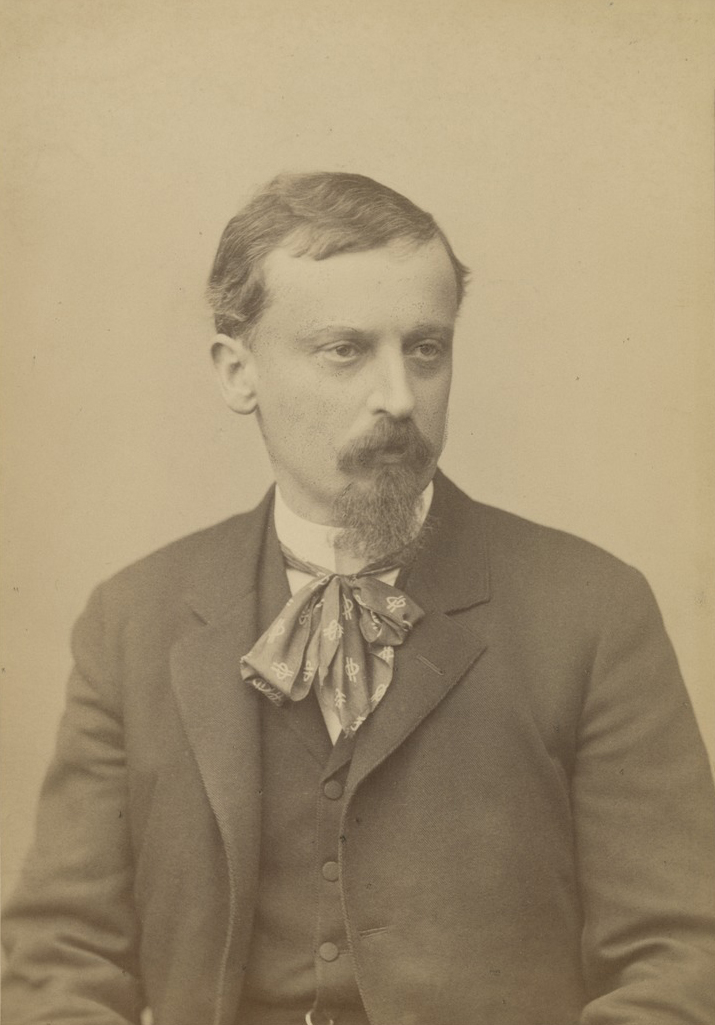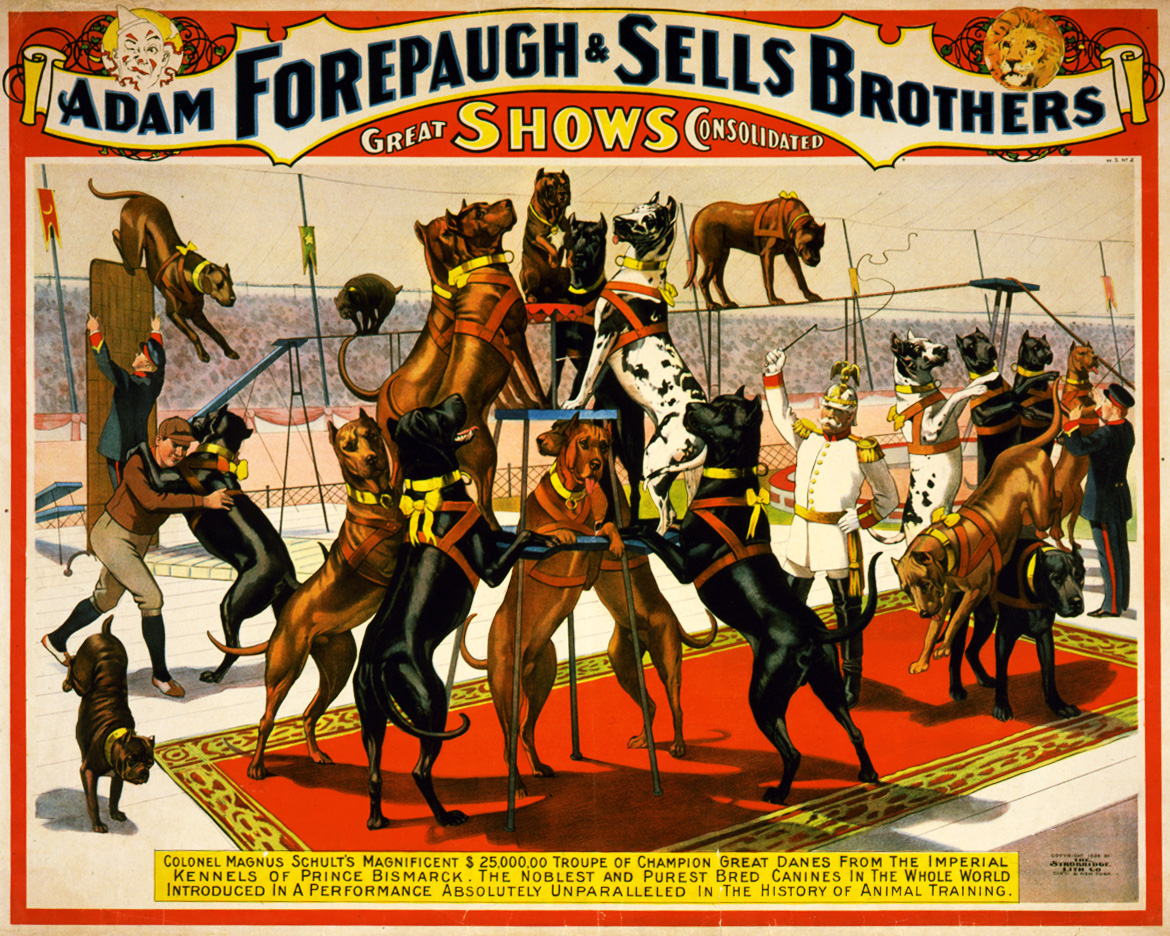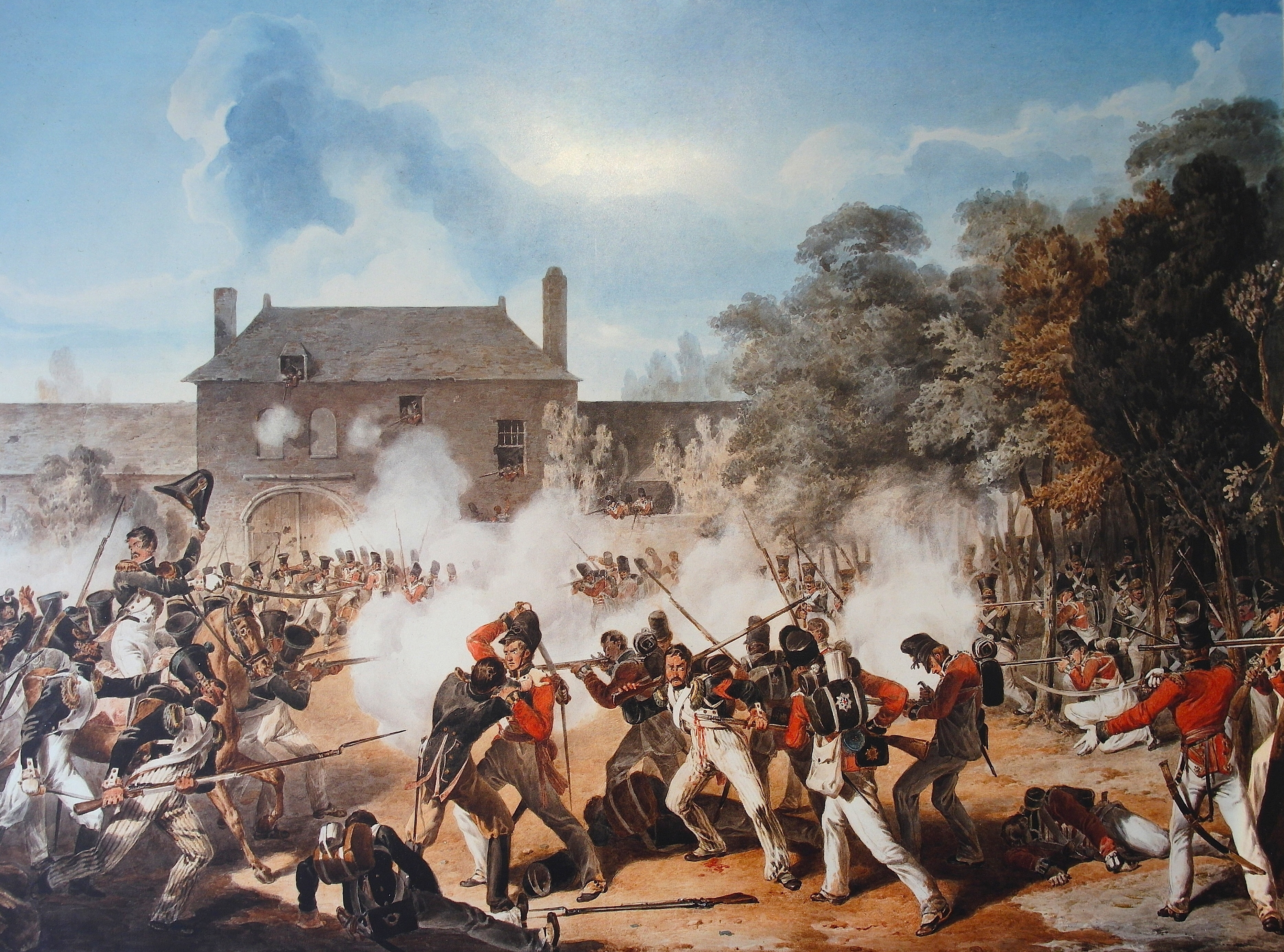|
Entrance Of The Gladiators
"Entrance of the Gladiators" op. 68 or "Entry of the Gladiators" ( cz, Vjezd gladiátorů) is a military march composed in 1897 by the Czech composer Julius Fučík. He originally titled it "Grande Marche Chromatique", reflecting the use of chromatic scales throughout the piece, but changed the title based on his personal interest in the Roman Empire. Generally, the march is divided into three parts. The first part contains the melody that the trumpet keeps and the several supporting parts. The second part is the section where the low brass (mainly the tubas) take over with the chromatic scale-like role. Finally there is a trio, or a softer melodic section, where there is a strong balance between woodwinds and low brass. The trio has a part similar to the second part with a chromatic scale-like sound. The piece is written in cut time and is originally written to be played at standard march tempo, but when played as a screamer it is usually played much faster. History Czec ... [...More Info...] [...Related Items...] OR: [Wikipedia] [Google] [Baidu] |
United States Marine Band
The United States Marine Band is the premier band of the United States Marine Corps. Established by act of Congress on July 11, 1798, it is the oldest of the United States military bands and the oldest professional musical organization in the United States. Today, the Marine Band includes the Marine Chamber Orchestra and Marine Chamber Ensembles. The Marine Band is entirely separate from its sister military band, the United States Marine Drum and Bugle Corps ("The Commandant's Own") and the 10 active duty Marine Corps field bands. The Marine Band has been uniquely known as "The President's Own" since 1801 due to its historical connection to the President of the United States. The relationship between the Marine Band and the White House began on New Year's Day 1801 when President John Adams invited the band to perform at the Executive Mansion. Later that year, Thomas Jefferson initiated the tradition of Marine Band performances by requesting that it perform at his inaugurati ... [...More Info...] [...Related Items...] OR: [Wikipedia] [Google] [Baidu] |
Henryk Sienkiewicz
Henryk Adam Aleksander Pius Sienkiewicz ( , ; 5 May 1846 – 15 November 1916), also known by the pseudonym Litwos (), was a Polish writer, novelist, journalist and Nobel Prize laureate. He is best remembered for his historical novels, especially for his internationally known best-seller ''Quo Vadis'' (1896). Born into an impoverished Polish noble family in Russian-ruled Congress Poland, in the late 1860s he began publishing journalistic and literary pieces. In the late 1870s he traveled to the United States, sending back travel essays that won him popularity with Polish readers. In the 1880s he began serializing novels that further increased his popularity. He soon became one of the most popular Polish writers of the turn of the 19th and 20th centuries, and numerous translations gained him international renown, culminating in his receipt of the 1905 Nobel Prize in Literature for his "outstanding merits as an epic writer." Many of his novels remain in print. In Poland he ... [...More Info...] [...Related Items...] OR: [Wikipedia] [Google] [Baidu] |
Edison Records
Edison Records was one of the early record labels that pioneered sound recording and reproduction, and was an important player in the early recording industry. The first phonograph cylinders were manufactured in 1888, followed by Edison's foundation of the Edison Phonograph Company in the same year. The recorded wax cylinders, later replaced by Blue Amberol cylinders, and vertical-cut Diamond Discs, were manufactured by Edison's National Phonograph Company from 1896 on, reorganized as Thomas A. Edison, Inc. in 1911. Until 1910 the recordings did not carry the names of the artists. The company began to lag behind its rivals in the 1920s, both technically and in the popularity of its artists, and halted production of recordings in 1929. Before commercial mass-produced records Thomas A. Edison invented the phonograph, the first device for recording and playing back sound, in 1877. After patenting the invention and benefiting from the publicity and acclaim it received, Edison ... [...More Info...] [...Related Items...] OR: [Wikipedia] [Google] [Baidu] |
Fairground Organ
A fairground organ (french: limonaire) is a French pneumatic musical organ covering the wind and percussive sections of an orchestra. Originated in Paris, France, it was designed for use in commercial Funfair, fairground settings to provide loud music to accompany rides and attractions, mostly merry-go-rounds. Unlike organs for indoor use, they are designed to produce a large volume of sound to be heard above the noises of crowds and fairground machinery. History As fairgrounds became more mechanised at the end of the nineteenth century, their musical needs grew. The period of greatest activity of fairground organ manufacture and development was the late 1830s, particularly with the opening of the Limonaire Frères company of :fr:Avenue Daumesnil (Paris), Avenue Daumesnil, Paris Paris () is the capital and most populous city of France, with an estimated population of 2,165,423 residents in 2019 in an area of more than 105 km² (41 sq mi), making it the 30th mo ... [...More Info...] [...Related Items...] OR: [Wikipedia] [Google] [Baidu] |
Clown
A clown is a person who performs comedy and arts in a state of open-mindedness using physical comedy, typically while wearing distinct makeup or costuming and reversing folkway-norms. History The most ancient clowns have been found in the Fifth Dynasty of Egypt, around 2400 BC. Unlike court jesters, clowns have traditionally served a socio-religious and psychological role, and traditionally the roles of priest and clown have been held by the same persons. Peter Berger writes, "It seems plausible that folly and fools, like religion and magic, meet some deeply rooted needs in human society." For this reason, clowning is often considered an important part of training as a physical performance discipline, partly because tricky subject matter can be dealt with, but also because it requires a high level of risk and play in the performer. In anthropology, the term ''clown'' has been extended to comparable jester or fool characters in non-Western cultures. A society in which ... [...More Info...] [...Related Items...] OR: [Wikipedia] [Google] [Baidu] |
Circus
A circus is a company of performers who put on diverse entertainment shows that may include clowns, acrobats, trained animals, trapeze acts, musicians, dancers, hoopers, tightrope walkers, jugglers, magicians, ventriloquists, and unicyclists as well as other object manipulation and stunt-oriented artists. The term ''circus'' also describes the performance which has followed various formats through its 250-year modern history. Although not the inventor of the medium, Philip Astley is credited as the father of the modern circus. In 1768, Astley, a skilled equestrian, began performing exhibitions of trick horse riding in an open field called Ha'Penny Hatch on the south side of the Thames River, England. In 1770, he hired acrobats, tightrope walkers, jugglers and a clown to fill in the pauses between the equestrian demonstrations and thus chanced on the format which was later named a "circus". Performances developed significantly over the next fifty years, with large-sca ... [...More Info...] [...Related Items...] OR: [Wikipedia] [Google] [Baidu] |
Screamer (march)
A screamer is a circus march intended to stir up the audience during the show. History Screamers were mostly composed in a 60-year period (1895–1955). Circuses were in need of music that would stir the audience into a frenzy, as four-footed animals galloped across the ring. Because march music was a prominent part of American music at that time, and because it carried such a quick tempo, it was this that ringmasters demanded. Musicality Circus marches are faster than a normal military march, often 130 to 150 beats/minute. Although screamers tend to follow the march form, they are often abbreviated, and additions, such as a quick cornet call introduction to a new melody, are included. A typical screamer lasts a minute to three and a half minutes. Screamers are a very demanding type of music, due to their extremely fast and advanced rhythms, especially the low-brass parts. Double and even triple tonguing is often required in order to play these rhythms. The trio in "Th ... [...More Info...] [...Related Items...] OR: [Wikipedia] [Google] [Baidu] |
Louis-Philippe Laurendeau
Louis-Philippe Laurendeau (1861 in St-Hyacinthe, Quebec, Canada – 13 February 1916 in Montreal) was a Canadian composer and bandmaster. He also held an editorial position with Carl Fischer, the New York music publishers. Most of Laurendeau's compositions and arrangements were for concert or military band and were published primarily by Fischer and Cundy-Bettoney. He also composed works of specific Canadian interest, such as ''Shores of the St Lawrence'', a medley for band, and ''Land of the Maple'', Opus 235, a march. He wrote, as well, on music pedagogy, including volumes on band instruction and arranging for band. He occasionally wrote under the pseudonym, Paul Laurent. He is most familiar to audiences throughout the world through his band arrangement of Julius Fučík's 1897 march, Entrance of the Gladiators (originally entitled ''Grande Marche Chromatique''). Laurendeau arranged the march for American Wind bands, and Carl Fischer published this in 1901 under the title T ... [...More Info...] [...Related Items...] OR: [Wikipedia] [Google] [Baidu] |
Concert Band
A concert band, also called a wind band, wind ensemble, wind symphony, wind orchestra, symphonic band, the symphonic winds, or symphonic wind ensemble, is a performing ensemble consisting of members of the woodwind, brass, and percussion families of instruments, and occasionally including the harp, double bass, or bass guitar. On rare occasions, additional, non-traditional instruments may be added to such ensembles such as piano, synthesizer, or electric guitar. Concert band music generally includes original wind compositions, concert marches, transcriptions of orchestral arrangements, light music, and popular music. Though the concert band does have similar instrumentation to the marching band, a marching band's main purpose is to perform while marching. In contrast, a concert band strictly performs as a stationary ensemble. Origins The origins of concert band can be traced back to the French Revolution, in which large bands would often gather for patriotic festivals an ... [...More Info...] [...Related Items...] OR: [Wikipedia] [Google] [Baidu] |
Carl Fischer Music
Carl Fischer Music (founded in 1872) is a sheet music publisher based in New York City's East Village. The company has since moved to the Wall Street area in 2013. After 140 years, the company remains a family-owned business, publishing both performance and educational music for students, teachers, and virtuosos. Carl Fischer's composers and editors give clinics and sessions all over the country, and the company claims to serve more than 1400 retailers around the world. History 1870s into the 20th century In 1872, Carl Fischer (publisher), Carl Fischer opened his musical instrument repair shop in the East Village neighborhood of New York City. Noticing that many of his customers were searching for instrumental arrangements of well-known works that didn't exist, Fischer began creating and reproducing arrangements, which led him into the music publishing business. Carl Fischer became the pre-eminent publisher of music for concert band composers such as Percy Grainger, John Philip ... [...More Info...] [...Related Items...] OR: [Wikipedia] [Google] [Baidu] |
Hermann Ludwig Blankenburg
Hermann Ludwig Blankenburg (14 November 1876 in Thamsbrück – 15 May 1956 in Wesel) was a German composer of military marches. Blankenburg was the only son of three children of Johann Heinrich and Ernestine Friederike Koch Blankenburg. He was born with the middle name Louis but changed it to Ludwig later in life perhaps as a connection to Beethoven. Raised on a sheep farm in Thamsbrücke, he was expected to manage the farm someday. However, he showed a propensity for music starting with performing on the piccolo – a favorite instrument his entire life. His family agreed on his studying music as long as he promised to serve in the army for twelve years. Blankenburg taught himself to play various instruments including bassoon, tuba, and violin and he conducted his school orchestra at the age of ten. He served actively in the military for two years (1896–1898), playing tuba in the band of the 6th Field Artillery Regiment in Breslau. After that his only service was pr ... [...More Info...] [...Related Items...] OR: [Wikipedia] [Google] [Baidu] |
Coldstream Guard
The Coldstream Guards is the oldest continuously serving regular regiment in the British Army. As part of the Household Division, one of its principal roles is the protection of the monarchy; due to this, it often participates in state ceremonial occasions. The Regiment has consistently provided formations on deployments around the world and has fought in the majority of the major conflicts in which the British Army has been engaged. The Regiment has been in continuous service and has never been amalgamated. It was formed in 1650 as 'Monck's Regiment of Foot' and was then renamed 'The Lord General's Regiment of Foot Guards' after the restoration in 1660. With Monck's death in 1670 it was again renamed 'The Coldstream Regiment of Foot Guards' after the location in Scotland from which it marched to help restore the monarchy in 1660. Its name was again changed to 'The Coldstream Guards' in 1855 and this is still its present title. Today, the Regiment consists of: Regimental Headq ... [...More Info...] [...Related Items...] OR: [Wikipedia] [Google] [Baidu] |








